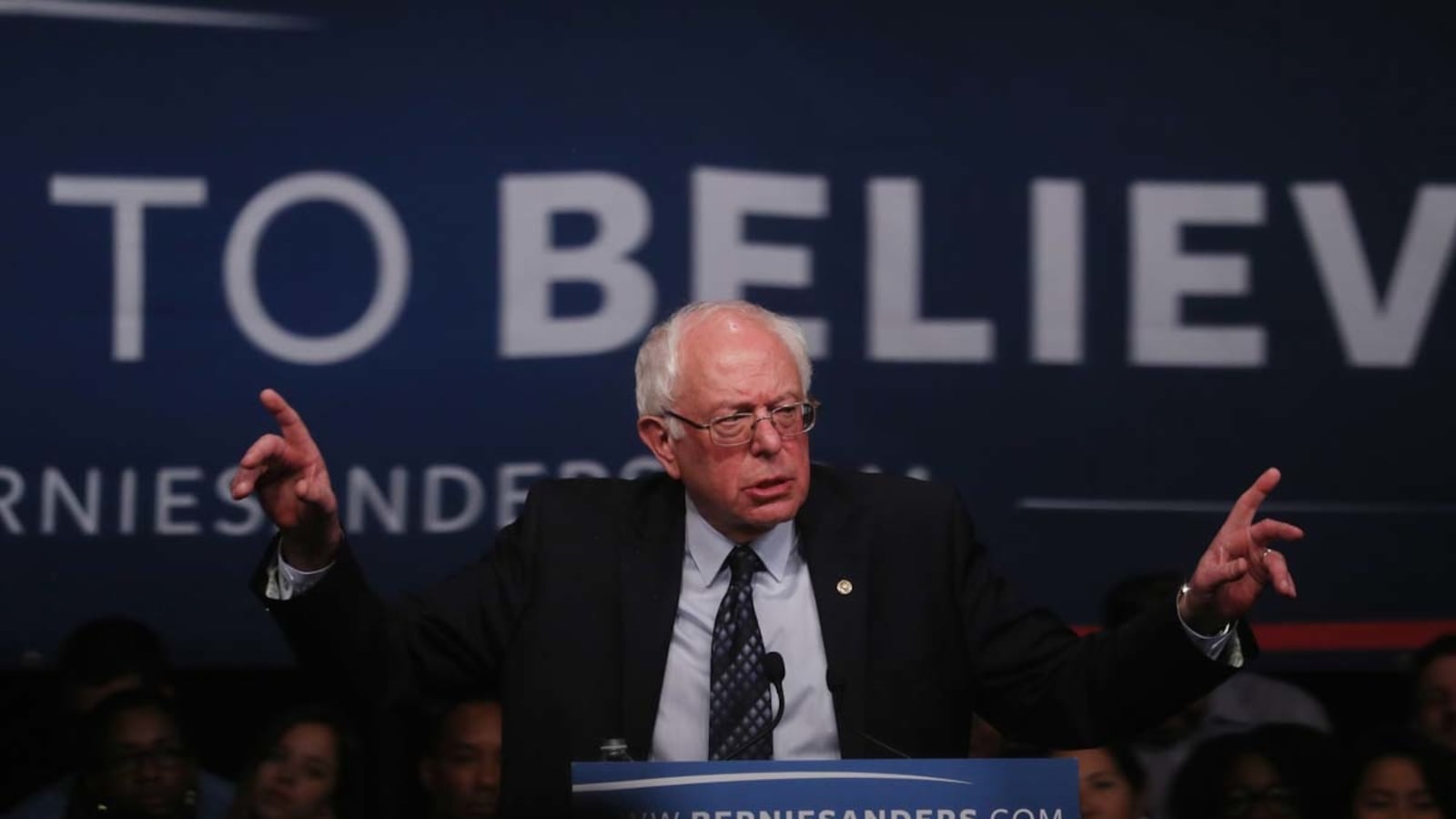OK, Sanders people, want me to eat crow? Trust me, I already have.
I’ve been writing some pretty tough pieces about Bernie lately because after Hillary Clinton beat him in Nevada, I didn’t see any evidence that he could win an important state. Well, he just won one. After Michigan, the Democratic reality has changed, in a potentially huge way.
Nobody saw this coming. Forget me. Nate Silver, who gave Clinton a 99 percent chance of winning the state, didn’t see it coming. Obviously even Sanders himself didn’t see it coming, or he wouldn't have given his victory speech in front of what was by all appearances an outhouse.
So there are three questions. How did this happen? How could the polls have been so amazingly wrong? And what does it portend?
As for how it happened, the exit polls give us a few answers. Clinton’s problem with young voters held pace as Sanders won four out of five voters age 30 and under. But it expanded—in Michigan, he walloped her by 24 points among those between 30 and 39. Thirty-nine isn’t so young. So her problem now isn’t just with “young voters.” It’s with virtually all voters who weren’t adults when Bill Clinton was first elected.
If you’re 40 and a Democrat, say, you were born in 1976 and you were 16 when Bill first won. Then you cast your first presidential vote for him in 1996. But all that feels like a long time ago to you. You’ve since gotten married and had kids and lost some hair and grown a paunch. In pop culture, people continue to love the things that remind them of their youth. In politics, apparently, it’s different.
If Hillary Clinton’s inability to connect generationally is bleeding into a cohort that has an actual living memory of her as first lady, that’s a new ball game and new level of trouble. But Clinton’s second—and far bigger—problem in Michigan was with independents. Clinton won among Democrats, but among independents who chose to vote in the Democratic primary and who constituted 28 percent of the electorate, Sanders took a whopping 70 percent.
Who were these people and what motivated them? We’ll never really know. Maybe the trustworthiness question, which showed up in the exit polls. Maybe the NAFTA attacks. Maybe Clinton’s attack on Sanders’s vote on the auto bailout, which was technically true but at the same time not quite fair and which Sanders made a last-minute ad about. It isn’t possible to say. They’re probably left-leaning independents, which makes a 70-30 pasting all the worse for Clinton, and it bodes ill for her electability.
That seems to be the gist of what happened. As to the polls, who knows? Clinton was said to be 20-plus points ahead. Nate Silver tweeted not long before the race was called: “If Sanders wins MI tonight, it will break Gary Hart’s record in 1984 NH for greatest upset vs. final polling average.” In other words, this was, in polling terms, the biggest upset of all time. Polls are never that far off. It had to be a combination of factors—some complacent Clinton voters stayed home, some voters changed their minds late, and some independents voted Democratic who weren’t sampled well in the polls. Whatever happened, it put all the polling of the next races in doubt.
And finally, what about those next races? It’s a very different contest now. Four big states vote next Tuesday: Florida, Ohio, Illinois, and Missouri. Florida and Ohio matter the most, for obvious reasons. Only Florida is closed (for Democrats only). The other three are open. If Clinton is going to win those states, she has to figure out some answer to this independent-voter problem.
One thing I think we can be sure of. Now that this is a real race, it’s likely to get nasty. That’s a danger zone for Clinton. She’s probably better off trying to come out with some new idea that resets the race in some way. I wrote last month about what that could be. The point is, her more pressing issue right now is not to redefine him, but to redefine herself.
As for Sanders, I give him a lot of credit. I didn’t believe for a minute he could win a state like Michigan. I’m still not a fan of his style of politics, but votes are what matter, and he just got a lot of them in a big, diverse state. He’s a more credible candidate as a result.






